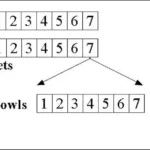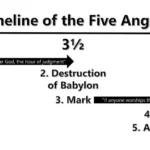Introduction
A new year and a new question. This question about whether we can actually speed up the Day of God and hence Jesus’ second coming comes from only one verse and it is in 2 Peter 3:12. Some translations say “hasten” and some say “speed its coming” and yet there are a few that translate this phrase as “earnestly desire the coming of the day of God.”1 The trouble is that the Greek verb “speudontas” can be interpreted and therefore translated in two different ways. Two different ways to interpret this word according to the Bible Translator’s Handbook is “hastening” or “speeding up” and another way to interpret this word is to “eagerly or earnestly wait for” or “to strive for,” “look for,” “wait for” or “expect.” There is no way to be entirely sure and so a principle of good biblical exegesis and Bible translation procedures is when there is only one verse to support a particular doctrinal position then you must look at other verses and context to get the meaning. A related idea to hastening or speeding up the coming of the day of God is the idea of speeding up the harvest of the righteous like the harvesting of wheat as in John 4:35 illustrated by the picture above. When the harvest is ready the farmers will work day and night to harvest the crop. Speed is of the essence! So the question remains, “Can we speed up the harvest work thereby effectively forcing the day of God to come earlier than we thought possible?”
Does the Messiah come because there is a third temple?
The fact is that the Jewish rabbis have traditionally believed that repentance will bring the end and that the return of their Messiah (not Jesus) will be brought about by the rebuilding of their 3rd temple. Chaim Richman, the director of the Temple Institute states in his Myth Buster YouTube series, that Jews should be performing all 613 mitzvot (commandments), which requires a temple. He also says that the third temple will “bring the Light back into the world” that left the Temple Mount when the Lord’s Divine Presence departed. Is this what Peter means by telling us to live holy and godly lives?2 You could make a plausible case for that as Peter was the apostle to the Jews. In short, no! The Messiah (Jesus) has already come and the Light has already come into the world. Jesus won’t be coming back a second time for the reason that the world has repented and the 3rd Temple has been rebuilt but He will return because it is time and the punishment of Israel is complete and 6000 years have passed. See the blog, “Trump – God’s wrecking ball.”
Does finishing the task of evangelism quicker bring back the Lord sooner?
If we can speed up the day that Christ returns then that seems to be related to the idea that we should be able to speed up the gospel advancing and souls being reached for Christ because that is a pre-condition according to many commentators in speaking about Matt. 24:14. The thinking goes that the end will only come once the gospel has been preached to the whole world. And that is exactly what it does say in this verse. But it doesn’t say who will finish off this harvest process. Does it mean every people group will have at least some portion of the Bible and some form of outreach to some of that people group or does it mean every last person? It is really hard to know the answer to that question but I think we can all agree that we should be making every effort to reach every one of over 6000 language groups as swiftly as possible. Great efforts have been made in the last 30 years since Cathi and myself have been involved in reaching unreached people groups and languages. I remember a young Asengseng tribal man asking me why it has taken so long for the gospel message to arrive in his place seeing as the crucifixion of Christ occurred almost 2000 years ago. A good question. It certainly hasn’t occurred with any speed or hastening!
Wrong interpretation
This whole idea presents another problem because the Day of the Lord seems to be a definite, known day even if only by God the Father Himself as quoted by Jesus in Matt. 24:36. Further to this point, some commentators explain that it was only at this time when Jesus was on earth that He did not know about the day that He would return a second time. Now that Jesus is seated at the right hand of the Father in Heaven, He would certainly know when He will be returning. But my point made many times on this Luke 21 website is that we can also have some certainty of His return because of the fact that the seven Jewish feasts are actually rehearsals of the seven major redemptive events on the prophetic timeline. The seven feasts are Passover, Feast of Unleavened Bread, Feast of First-fruits, Pentecost, Feast of Trumpets, Day of Atonement, and the Feast of Tabernacles. The first three feasts correspond to the death, burial, and resurrection of Christ, the next four feasts, the birth of the church, rapture of the church, return of Christ in glory, and the completion of the harvest and in-gathering. (Learn about the feasts and their prophetic fulfillment in the Feasts of God series.) So the point is that if these events are closely tied to particular dates and days of the feasts then these days are set and they cannot be hastened or sped up. The context and other verses say to me in my opinion that the way that the majority of translations translate 2 Peter 3:12 is wrong and it should be translated as “eagerly expecting or waiting” for the day of God. The way that I have translated 2 Peter 3:11-12 in my EDV is as follows:
11Since everything will be destroyed in this way, what kind of people should you be? You should be living holy and godly lives 12as you anticipate and eagerly wait for the coming day of God. This is the day in which the heavens will burn up and be destroyed and the heavenly bodies will melt in the heat.
2 Peter 3:11-12 (Steve's EDV)
Conclusion
So in effect, it is not that we can really speed up the coming day of God but the point that Peter was making was that we should live holy and godly lives as we wait for it to come. Many translations actually agree with this view too including NSRV, HCSB, TEV, etc. We should also continue on in reaching the world for Christ with urgency in our work especially as we have seen the movements of people and missionaries tighten up this last year due to the virus. I believe that Satan would be absolutely delighted as he sees missionaries restricted from returning to the mission fields. I personally know of missionaries who have been indefinitely delayed in getting back to their countries of service. This means that it is going to get harder and harder to reach the world for Christ as we get closer. But God has His methods that we don’t even know about. The two witnesses in the first 1260 days of the tribulation period will get their message out and also the 144,000 from the twelve tribes of Israel will have free reign to preach not only the gospel but come with the message that the kingdom of God is close and be ready to leave.3 See the blog, “What will the 144,000 do for seven years?“
So to answer the question, “Can we hasten the day of God?” I think the answer is no–it has been mistranslated in my opinion. But the point of that passage in 2 Peter is for us to stick to the truth and persevere in our godly lives. Don’t give up being holy, don’t give up doing good works, don’t give up being a light in a dark world because everything around us is going to tell us to give up especially as we get closer and closer. The world will laugh at our archaic and old-fashioned views and we will be forced to run with the popular worldly crowd. And we may even be dragged before courts.4
As Jesus says in His seven letters to the seven churches, “Be overcomers!”

















2 Responses
Thanks Steve for your study and notes on whether we can hasten the return of Jesus.
Your conclusions make good sense – Biblically especially! As Christians we have a lot to live up to as we anticipate, prepare for and work towards Jesus’ return. Being closely led by the Spirit will be vital for our guidance, comfort and strength!
Totally agree we cannot speed up the return of Jesus. Only the Father knows of the day and hour of the return of Jesus, and we can’t interfere with God’s timing.